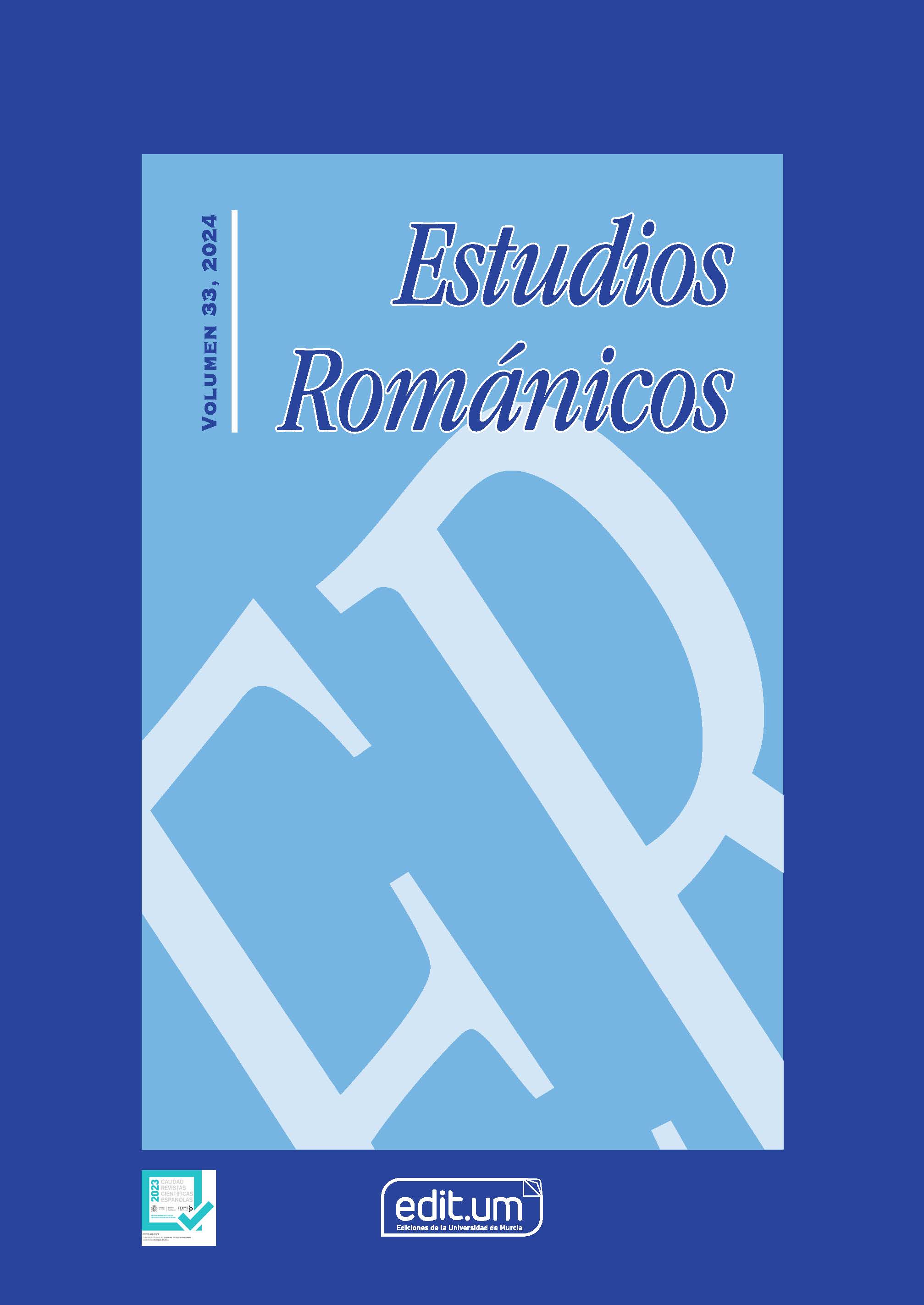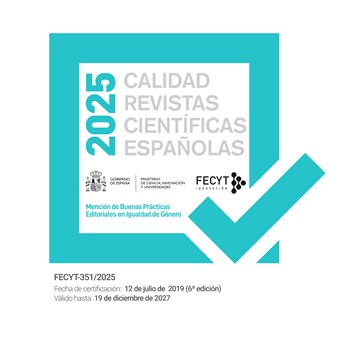Pragmatic Factors in the Explicitation of First-Person Subject Pronouns in Parliamentary Speech
Abstract
The explicit use of personal pronouns jo and nosaltres with the syntactic function of sentence subject in a pro-drop language like Catalan carries certain socio-pragmatic information related to the management of social image by the interlocutors. In the present study we focus on the functions of the two subject pronouns in current Catalan parliamentary discourse. The analysis carried out allows us to verify that it is an important resource of the self-image of politicians, which allows them to highlight their attitudes, preferences, or opinions, which can be individual or group. This strategic communicative behavior often includes effects on the figure of other people involved in the communicative situation. The expression of the pronoun can serve to establish a contrast between the speaker and the others and can produce an impolite effect or, on the other hand, the pronoun can serve to maintain equilibrium between the images involved and, in this case, the effect can be polite.
Downloads
-
Abstract279
-
pdf (Español (España))258
References
ALCAIDE LARA, Esperanza R. (2009): "El “yo” de los políticos: ¿cuestión de género?". Discurso & Sociedad, 6 (1), 5-20. [https://idus.us.es/bitstream/handle/11441/62603/el%20yo%20de%20los%20pol%c3%adticos....pdf?sequence=1&isAllowed=y; 19/02/2023]
BRAVO, Diana (1999): "¿Imagen “positiva” vs. imagen “negativa”?: Pragmática sociocultural y componentes de face". Oralia, 2, 155–184.
BRAVO, Diana (2002): "Actos asertivos y cortesía: Imagen del rol en el discurso de académicos argentinos". D. Bravo i M. E. Placencia (eds.), Actos de habla y cortesía en el español. Munich: Lincom Europa, 141–174.
BRAVO, Diana (2005): "Categorías, tipologías y aplicaciones. Hacia una redefinición de la cortesía comunicativa". D. Bravo (ed.), Estudios de la (des)cortesía en español. Categorías conceptuales y aplicaciones a corpora orales y escritos. Buenos Aires: Dunken, 21–52.
BROWN, Penélope i LEVINSON, Stephen C. (1987 [1978]): Politeness. Some universals in language use. Cambridge: Cambridge University Press.
DE COCK, Barbara (2009): "Funciones pragmáticas de la referencia de persona en el lenguaje coloquial y en el discurso político". Oralia, 12, 247–266. [https://doi.org/10.25115/oralia.v12i.8133]
DE COCK, Barbara (2012): "El debate parlamentario frente al lenguaje coloquial y al debate televisivo: una caracterización lingüística basada en el uso de la referencia de persona". E. del Río, M. del C. Ruiz de la Cierva i T. Albaladejo (eds.), Retórica y política. Los discursos de la construcción de la sociedad. Logroño: Instituto de Estudios Riojanos, 729-743.
DE COCK, Barbara i NOGUÉ SERRANO, Neus (2017): "The pragmatics of person reference: A comparative study of Catalan and Spanish parliamentary discourse". Languages in Contrast, 17 (1), 96–127. [https://doi.org/10.1075/lic.17.1.05dec]
GOFFMAN, Erving (1967): Interaction ritual: Essays on face to face behavior. Doubleday.
GRICE, Herbert Paul (1975): "Logic and conversation". P. Cole i J. Morgan (eds.), Syntax and Semantics. Nueva York: Academic Press, 41-58.
HERNÁNDEZ FLORES, Nieves (2013): "Actividad de imagen: caracterización y tipología en la interacción comunicativa". Pragmática Sociocultural, 1 (2), 175–198. [https://doi.org/10.1515/soprag-2012-0012]
ILIE, Cornelia (2006): "Parliamentary Discourses". K. Brown (ed.), Encyclopedia of Language & Linguistics (2ª ed.). Elsevier Ltd, 188- 196. [https://doi.org/10.1016/B0-08-044854-2/00720-3]
Institut d'Estudis Catalans (2016): Gramàtica de la llengua catalana. Barcelona: Institut d'Estudis Catalans.
KAUL DE MARLANGEON, Silvia (2005): "Descortesía de fustigación por afiliación exacerbada o refractariedad". D. Bravo (ed.), Estudios de la (des)cortesía en español. Categorías conceptuales y aplicaciones a corpora orales y escritos. Buenos Aires: Dunken, 299-318.
KERBRAT-ORECCHIONI, Catherine (1996): La conversation. Paris: Seuil.
KERBRAT-ORECCHIONI, Catherine (2004): "¿Es universal la cortesía?". D. Bravo i A. Briz (eds.), Pragmática sociocultural: estudios sobre el discurso de cortesía en español, 39-54.
KUZMOVÁ, Lucie (2021): "L’ús pragmàtic de la forma verbal crec (que) en les interaccions parlamentàries". eHumanista/IVITRA, vol. 20. Santa Barbara: The University of California, 167-179. [https://www.ehumanista.ucsb.edu/sites/default/files/sitefiles/ivitra/volume20/2.7.%20Kuzmov%C3%A1.pdf; 05/02/2023]
NOGUÉ SERRANO, Neus i PAYRATÓ, Lluís (2023): "Variation and change in reference to discourse participants in Catalan parliamentary debate (1932–1938 and 1980–2020)". P. Posio i P. Herbeck (eds.), Referring to discourse participants in Ibero-Romance languages. (Open Romance Linguistics 4). Berlin: Language Science Press, 307-343. [https://langsci-press.org/catalog/book/376]
ROSSOWOVÁ, Lucie (2020): "La forma verbal crec (que) com a recurs de l’atenuació i la intensificació pragmàtiques". eHumanista/IVITRA, vol. 18. Santa Barbara: The University of California, 276-288. [https://www.ehumanista.ucsb.edu/sites/default/files/sitefiles/ivitra/volume18/3.7.%20Rossowova%CC%81.pdf; 27/01/2023]
SEARLE, John Rogers (1969): Speech Acts: An Essay in the Philosophy of Language. Cambridge: Cambridge University Press.
SERRANO, María José i AIJÓN OLIVA, Miguel Ángel (2010): "La posición variable del sujeto pronominal en relación con la cortesía interactiva". Pragmalingüística, 18, 170-204. [https://www.researchgate.net/publication/277166607_La_posicion_variable_del_sujeto_pronominal_en_relacion_con_la_cortesia_interactiva; 16/02/2023]
SOLER BONAFONT, M. Ámparo (2016): "La función atenuante en los verbos doxásticos del español." Revista Internacional de Lingüística Iberoamericana, XIV-1 (27), 75-90. [https://doi.org/10.31819/rili-2016-142706]
STEWART, Miranda (2001): "Los 'hedges' y el uso del 'yo' en la interacción cara-a-cara". Estudios de Lingüística del Español (ELiEs), 13. [http://elies.rediris.es/elies13/stewart.htm; 04/04/2023]
TODOLÍ, Júlia (2008 [2002]): "Els pronoms". J. Solà, (ed.), Gramàtica del català contemporani (4ª ed., vol.2). Barcelona: Empúries, 1341-1431.
VAN DIJK, Teun A. (1995): "Discourse Analysis as Ideology Analysis". Ch. Schäffne i A. L. Wenden (eds.), Language & Peace. Routledge, 17-33. [https://doi.org/10.4324/9780203984994]
[DSPC-P 94] Diari de Sessions del Parlament de Catalunya, 94, sessió 45.1. [En línia: [https://www.parlament.cat/document/dspcp/327041782.pdf.; 15/03/2023]
[DSPC-P 97] Diari de Sessions del Parlament de Catalunya, 97, sessió 46.1. [En línia: [https://www.parlament.cat/document/dspcp/333051505.pdf; 28/03/2023]
[DSPC-P 100] Diari de Sessions del Parlament de Catalunya, 100, sessió 48.1. [En línia: [https://www.parlament.cat/document/dspcp/340339362.pdf; 17/04/2023]
Copyright (c) 2024 Estudios Románicos

This work is licensed under a Creative Commons Attribution-NonCommercial-ShareAlike 4.0 International License.
Las obras que se publican en esta revista están sujetas a los siguientes términos:
1. El Servicio de Publicaciones de la Universidad de Murcia (la editorial) conserva los derechos patrimoniales (copyright) de las obras publicadas, y favorece y permite la reutilización de las mismas bajo la licencia de uso indicada en el punto 2.
2. Las obras se publican en la edición electrónica de la revista bajo una licencia Creative Commons Reconocimiento-NoComercial-SinObraDerivada 3.0 España (texto legal). Se pueden copiar, usar, difundir, transmitir y exponer públicamente, siempre que: i) se cite la autoría y la fuente original de su publicación (revista, editorial y URL de la obra); ii) no se usen para fines comerciales; iii) se mencione la existencia y especificaciones de esta licencia de uso.
3. Condiciones de auto-archivo. Se permite y se anima a los autores a difundir electrónicamente las versiones pre-print (versión antes de ser evaluada) y/o post-print (versión evaluada y aceptada para su publicación) de sus obras antes de su publicación, ya que favorece su circulación y difusión más temprana y con ello un posible aumento en su citación y alcance entre la comunidad académica. Color RoMEO: verde.













